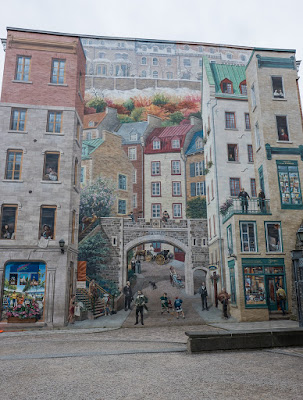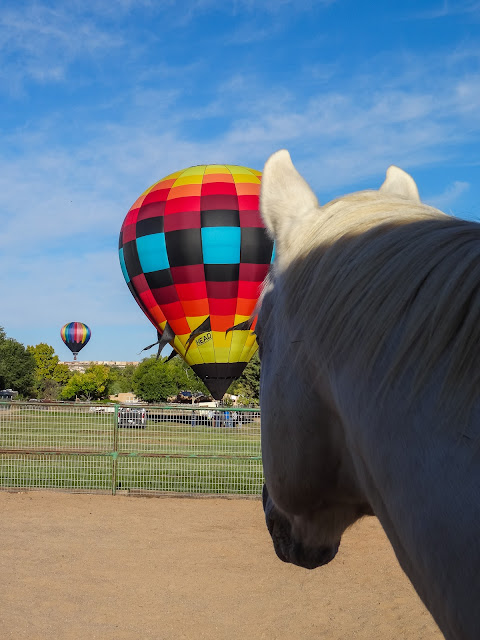Buster
We live in a funny kind of town. A thousand years ago, the area was dotted with tiny pueblos, home to the descendants of the Anasazi who built the magnificent stone castles up in the Four Corners area. They were followed by the Spanish who settled the extreme northern edge of their country’s North American empire. A hard scrabble life at the end of El Camino Real in a forgotten colony, their dominion lasted until the westward spread of the American Empire engulfed them in a war that saw little change beside their putative government. Around this time my village gained its name - “Corrales” – home to the stockyards food for Albuquerque a few miles to the south.
During the American Civil War an expedition from Texas rolled in and rolled out, sent packing by a clever rear guard movement executed by Union volunteers from Colorado. Their supplies destroyed, they had nothing to do but shake the white dust off of their coats and slink back down the road to await their final destruction in 1865. Then the valley had a long run as a home to small farms – fruits and vegetable and alfalfa – a flourish maintained by an influx of Italian and French immigrants who saw the climate as a bit like their own. Corrales fell into a comfortable slumber and stayed the same through the first two thirds of the twentieth century before seeing a third rejuvenation via a colony of hippies and artists. It was the perfect place, slightly off the beaten path, funky enough to pass muster and yet accessible.
The ‘70s and ‘80s saw one last transition, this time to suburbia - home to people who wanted a little land around their house and didn’t mind a couple of mobile homes on their street. A few enclaves popped up, not gated but still exclusive enough that the people in them wanted to remake the place in the image of the one they left. Only this time they wanted they wanted the extras – a horse or two, some chickens, a goat and maybe a burro. It almost goes without saying that they wanted a few dogs too and the ability to defend their right to let those dogs bark all day long. Those of us not quite bitten by the “return to nature with privileges” bug, call this “The Kit.”
My retirement has created lots of nice opportunities to enjoy the high life. The village is laced with irrigation ditches and associated roads, which allows us to take great walks during the more temperate months, enjoying the scenery, the trees, the sounds of the flowing water and the wildlife. We have a great population of birds and critters and in many cases the denizens of The Kit bump right up against the paths we use to walk to the post office or the coffee shop. We don’t leave home without a pocket full of horse cookies and dog biscuits and we’ve developed a lot of friends along the way. A big fat brown Lab greets us just up the street if she isn’t passed out in her pasture. A guy at the end of the block has four horses that see us coming and line up for a treat. Coming and going. One horse lives alone in a pasture that is choked with burdocks; he stops by for a treat. But our favorite is a burro that lives about a mile down the acequia - central irrigation canal. He has two giant pastures that frame an overly built home set a good distance back from the ditch. Sometimes he’s there, other times not, choosing instead to stand in the shade of one of the trees that ring the house or to hole up in his barn. We’ve heard that he was rescued from somewhere out in the badlands and that the companion he used to have died only recently. We’ve taught him to come to our whistle and when he hears us, he does - braying and squealing all the way from some remote corner of his domain.
One Sunday afternoon we decided to pay him a visit. We loaded up our pockets with apple and oat cookies and started off, passing the beggar horses at the end of the street. When we arrived at his pasture he was there, but pretty far off in the distance. A loud whistle pricked up his ears but also woke up his owner’s dog, starting it barking. A human head popped up over the backyard shrubs and we knew we were being observed. Like anybody doing something dodgy, we shuffled around trying to look innocent. In the eyes of our burro friend, we were the afternoon treat. And he did something he’d never done before – he started running and braying as loud as he could.
His owner apparently didn’t like this diversion of his affection because she started yelling at him.
“Buster, you come back here!”
“Right now Buster!”
“Buster, get back here!”
To which Buster brayed even louder and ran even faster.
We were doubled over with laughter at this scene. If it wasn’t ridiculous enough for someone to expect a burro to understand English, it was certainly beyond the pale to expect him to stop what he was doing and listen to her direction. Especially where a meal was involved. Buster just kept coming and yelling as fast and as loud as he could.
We emptied our pockets after discretely leading him to a corner of his pasture where we could be screened by some pine trees. The owner stood there peering over her bushes, shielding her eyes from the sun and no doubt wondering why Buster was so interested. I understand her feelings - I doubt I would like someone feeding my horses over the back fence. But then I’ve taken the time to build a second level of containment to prevent that. Call it a rationale, but she can hardly expect soft hearted humans to ignore someone as compelling as Buster.



During the American Civil War an expedition from Texas rolled in and rolled out, sent packing by a clever rear guard movement executed by Union volunteers from Colorado. Their supplies destroyed, they had nothing to do but shake the white dust off of their coats and slink back down the road to await their final destruction in 1865. Then the valley had a long run as a home to small farms – fruits and vegetable and alfalfa – a flourish maintained by an influx of Italian and French immigrants who saw the climate as a bit like their own. Corrales fell into a comfortable slumber and stayed the same through the first two thirds of the twentieth century before seeing a third rejuvenation via a colony of hippies and artists. It was the perfect place, slightly off the beaten path, funky enough to pass muster and yet accessible.
The ‘70s and ‘80s saw one last transition, this time to suburbia - home to people who wanted a little land around their house and didn’t mind a couple of mobile homes on their street. A few enclaves popped up, not gated but still exclusive enough that the people in them wanted to remake the place in the image of the one they left. Only this time they wanted they wanted the extras – a horse or two, some chickens, a goat and maybe a burro. It almost goes without saying that they wanted a few dogs too and the ability to defend their right to let those dogs bark all day long. Those of us not quite bitten by the “return to nature with privileges” bug, call this “The Kit.”
My retirement has created lots of nice opportunities to enjoy the high life. The village is laced with irrigation ditches and associated roads, which allows us to take great walks during the more temperate months, enjoying the scenery, the trees, the sounds of the flowing water and the wildlife. We have a great population of birds and critters and in many cases the denizens of The Kit bump right up against the paths we use to walk to the post office or the coffee shop. We don’t leave home without a pocket full of horse cookies and dog biscuits and we’ve developed a lot of friends along the way. A big fat brown Lab greets us just up the street if she isn’t passed out in her pasture. A guy at the end of the block has four horses that see us coming and line up for a treat. Coming and going. One horse lives alone in a pasture that is choked with burdocks; he stops by for a treat. But our favorite is a burro that lives about a mile down the acequia - central irrigation canal. He has two giant pastures that frame an overly built home set a good distance back from the ditch. Sometimes he’s there, other times not, choosing instead to stand in the shade of one of the trees that ring the house or to hole up in his barn. We’ve heard that he was rescued from somewhere out in the badlands and that the companion he used to have died only recently. We’ve taught him to come to our whistle and when he hears us, he does - braying and squealing all the way from some remote corner of his domain.
One Sunday afternoon we decided to pay him a visit. We loaded up our pockets with apple and oat cookies and started off, passing the beggar horses at the end of the street. When we arrived at his pasture he was there, but pretty far off in the distance. A loud whistle pricked up his ears but also woke up his owner’s dog, starting it barking. A human head popped up over the backyard shrubs and we knew we were being observed. Like anybody doing something dodgy, we shuffled around trying to look innocent. In the eyes of our burro friend, we were the afternoon treat. And he did something he’d never done before – he started running and braying as loud as he could.
His owner apparently didn’t like this diversion of his affection because she started yelling at him.
“Buster, you come back here!”
“Right now Buster!”
“Buster, get back here!”
To which Buster brayed even louder and ran even faster.
We were doubled over with laughter at this scene. If it wasn’t ridiculous enough for someone to expect a burro to understand English, it was certainly beyond the pale to expect him to stop what he was doing and listen to her direction. Especially where a meal was involved. Buster just kept coming and yelling as fast and as loud as he could.
We emptied our pockets after discretely leading him to a corner of his pasture where we could be screened by some pine trees. The owner stood there peering over her bushes, shielding her eyes from the sun and no doubt wondering why Buster was so interested. I understand her feelings - I doubt I would like someone feeding my horses over the back fence. But then I’ve taken the time to build a second level of containment to prevent that. Call it a rationale, but she can hardly expect soft hearted humans to ignore someone as compelling as Buster.






Comments